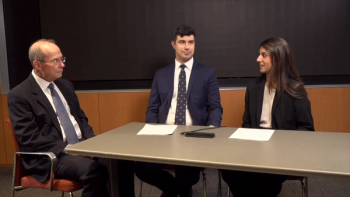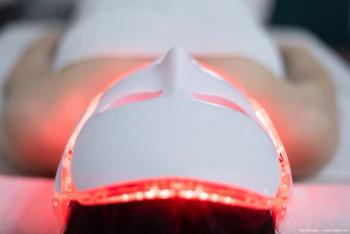
- Ophthalmology Times: September 1, 2020
- Volume 45
- Issue 14
Dispelling myths about refractive lens exchange
RLE, in unexpected twist, is gaining support among surgeons
This article was reviewed by Arjan Hura, MD
As
As each iteration and generation of new
Related:
However, the acceptance of replacing a lens purely for
A previous widely held misconception was that ophthalmologists do not have LASIK performed on their own eyes, which was dispelled by 2 studies in 2014 and 2015.
Results of the first, led by Ron Krueger et al, showed that physicians that had LASIK had a 95.3% satisfaction rate with their results,1 and the results from second study, led by Guy Kezirian, MD, and members of the Refractive Surgery Alliance (RSA), showed that refractive surgeons are 4 times more likely than the general population to undergo laser vision correction.2
Considering those results, Arjan Hura, MD, and Guy Kezirian, MD, MBA, FACS, decided to use the same approach to test impressions about RLE by asking surgeons about their own experiences with undergoing the procedure.
Related:
Study design
Hura and Kezirian performed a prospective, randomized-survey study to determine the prevalence of RLE among active refractive surgeons, their recommendations to family members and friends to undergo the procedure, and the satisfaction rates among the ophthalmologists who underwent the procedure.
Five hundred ophthalmologists were selected randomly to receive the 29-question survey from among 2441 ophthalmologists who had used SurgiVision DataLink software products to plan refractive surgeries; specifically, they were asked about their personal experience with
Related:
The main purpose of the study was to establish the prevalence of RLE among refractive surgeons, but the study also looked at whether those surgeons had recommended RLE to family and family members, and whether those family members undrgone RLE.
The study also sought to characterize the attitudes and satisfaction rates among refractive surgeons who undergone RLE.
The premise was that the prevalence rate of RLE among
Related:
Results
Preliminary results presented at
Ninety-nine percent of the responders considered themselves
Almost 50% of those who underwent laser vision correction were in their 30s, 30% in their 40s, and 22% in their 20s at the time of surgery.
Of the survey responders, 8.5% reported having undergone a lens procedure for
Related:
An interesting finding was that 24% of the responders said they anticipate undergoing RLE for presbyopia; those who would not undergo the procedure were closer to the age of cataract surgery, wanted to wait for improved intraocular lens technologies, were concerned about potential complications, would not be able to tolerate multifocality, or reported the presence of a pre-existing ocular factor that would interfere with RLE, Hura said.
Based off the initial responses, the main study conclusions are the majority of refractive surgeons are performing RLE, almost one-third have recommended RLE to immediate family members, and almost a fifth have family members who have undergone RLE.
The investigators have no financial interest in this subject matter.
--
Arjan Hura, MD
e:[email protected]
Hura is a third-year ophthalmology resident at the University of Cincinnati in Ohio. Dr Kezirian is the founder of the Refractive Surgery Alliance (RSA), and lives in Scottsdale, Arizona.
--
References
1. Pasquali TA, Smadja D, Savetsky MJ, et al.Long-term follow-up after laser vision correction in physicians: quality of life and patient satisfaction. J Cataract Refract Surg. 2014;40(3):395-402. doi:10.1016/j.jcrs.2013.08.052
2. Kezirian GM, Parkhurst GD, Brinton JP, Norden RA. Prevalence of laser vision correction in ophthalmologists who perform refractive surgery. J Cataract Refract Surg. 2015;41(9):1826-1832. doi:10.1016/j.jcrs.2015.10.027
Articles in this issue
over 5 years ago
Improve patient comfort with intravitreal injectionsover 5 years ago
Stem cells for dry AMD with GA show promise in early studyover 5 years ago
Ophthalmology taking the treatment conversation onlineover 5 years ago
Astigmatism management software proving to be accurate, preciseover 5 years ago
Examining ocular allergy, quality of lifeover 5 years ago
Improving surgical safety, efficiency, and outcomes for patientsover 5 years ago
IOL offering treatment options for ophthalmologistsover 5 years ago
Unproductive worry: Conquering fear during a pandemicNewsletter
Don’t miss out—get Ophthalmology Times updates on the latest clinical advancements and expert interviews, straight to your inbox.





























